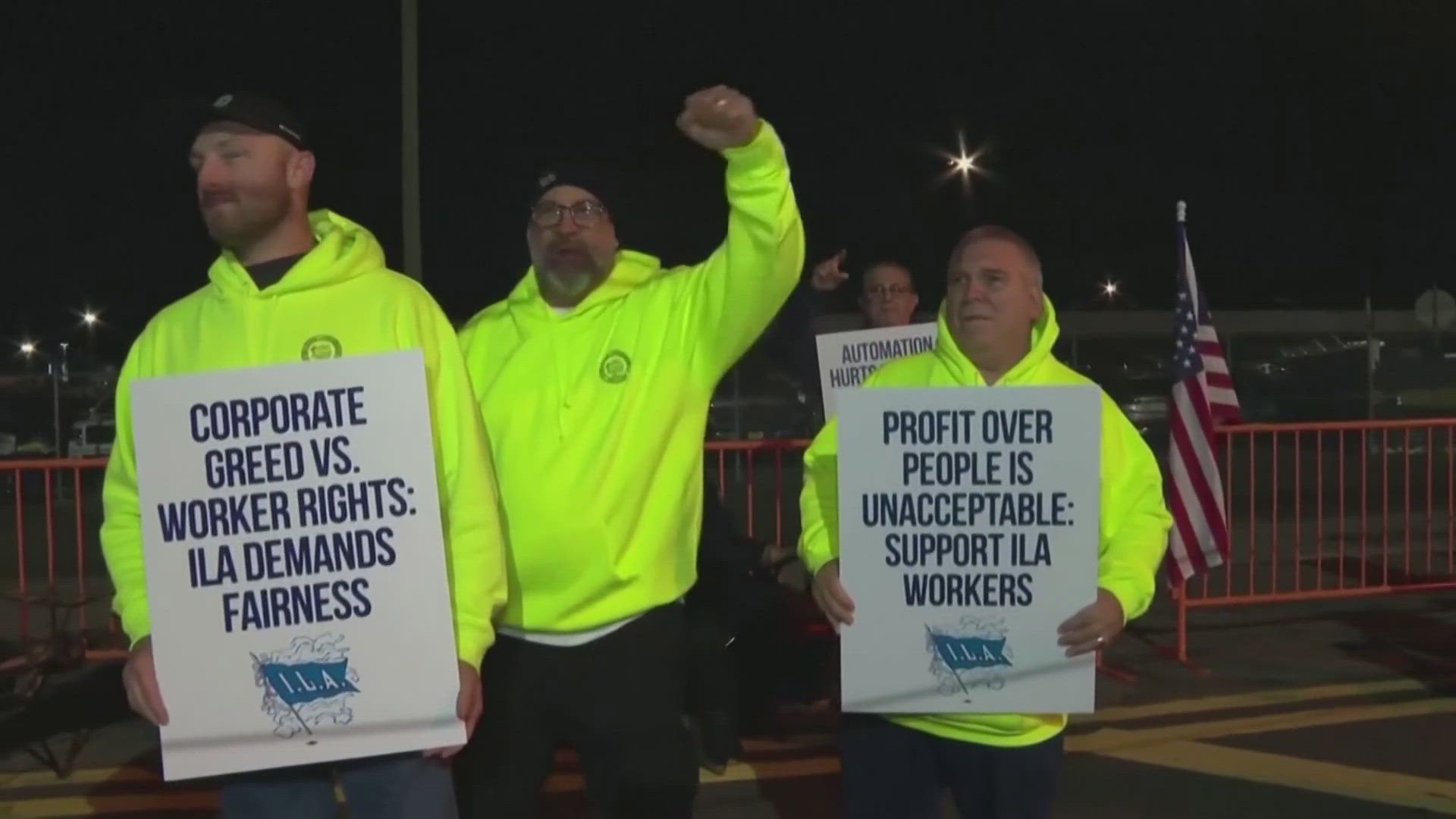DALLAS — Since 1956, Gipson Grocery has been a staple in West Dallas. Phillip Gipson, the store's owner, is a second-generation owner.
“Gipson Grocery is considered to be the oldest Black-owned convenient grocery store,” said Phillip. “We endured a lot during that time period obviously in the 50s and 60s to establish the grocery store and keep it going.”
Gipson Grocery is located in what’s considered a food desert. His store offers low prices to help lower-income families, but he could see a change with about 45,000 dockworkers on strike.
“It’s going to escalate the prices of food. We’re praying and hoping that it doesn’t,” said Phillip.
That is the same hope Branden Brandon has. He owns Special Edition, a custom car shop, in Deep Ellum. “A lot of my orders, a lot of my bills, a lot of my products do come from overseas,” said Brandon.
Although his business may be impacted by the strike, he sympathizes with the port workers union, the International Longshoremen's Association, who are striking for higher wages and a ban on automation. "If you take those jobs away from people, how are they going to feed their families? I understand exactly where they're coming from. Like, we're going to get to you before you get to us,” said Brandon.
SMU professor, Sreekumar Bhaskaran, said the 36 ports on strike are on the East and Gulf Coasts which mostly get supplies such as food and car parts from Europe. He said ports on the West Coast are part of a different union.
“We are going to see some higher prices because this shortage of supply, shortage of goods,” said Bhaskaran, SMU Corrigan Research Professor. “We are kind of going to get some of these inflationary pressures back on. I mean back in control. I mean loss in pay, loss in some sort of employment because all of a sudden, we are not going to get the goods and the products that we really want.”
Bhaskaran said the other challenge is when the strike ends. “When there is condition and delays that are going to happen, even if it is just a short time, even if this is going to the strike is going to be just a few weeks, the condition that it creates, and the delays and the backlogs that it's going to create, is going to stay for a long time because it's not easy for us to very quickly, kind of go back to the normal way of doing things, even when the strike ends,” said Bhaskaran.
Still, the professor said there is no need to panic. “What can complicate things is if people go on a panic mode and we start stocking up things,” said Bhaskaran. “Firms and companies, they have seen what has happened over the last several years, and now they are better prepared to handle some of these disruptions.”
That is the hope for Phillip, who just wants to continue meeting his community’s needs through legacy.

